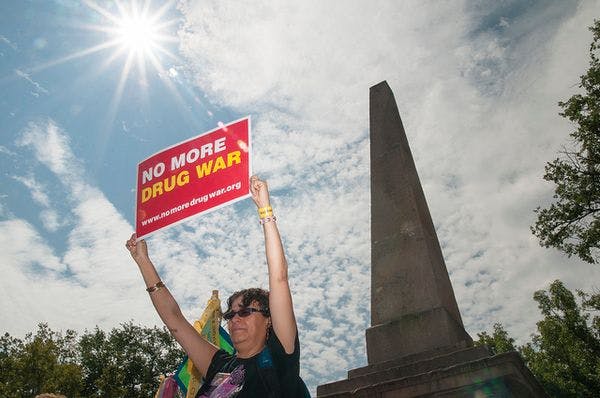War on drugs to cost more lives as harm reduction strategies stall
By Gen Sander and Katie Stone
Sometimes good news can distract you from what's going wrong under the surface. Earlier this month, the UK reported a 79% drop in the number of 18-to-24 year olds seeking treatment for heroin dependence. It was hailed as a success by anti-drug campaigners, but these figures mask worrying trends in the response to drug use.
As Harm Reduction International (HRI) report today shows, we're seeing a sudden decline in efforts to get health interventions like needle and syringe programmes (NSPs) and opioid substitution therapy (OST) to people who inject drugs. These interventions are part of the harm reduction approach to drug use. It's about trying to reduce the negative health, social and human rights impacts of drug use and policy, rather than just focusing on criminal justice.
Click here to read the full article.
Keep up-to-date with drug policy developments by subscribing to the IDPC Monthly Alert.
Thumbnail: CC Eneas De Troya
Topics
- Access to controlled medicines
- Criminal justice
- Decriminalisation
- Demand reduction
- Drug dependence treatment
- Harm reduction
- Hepatitis
- Opium & opioids
- HIV/AIDS
- Human rights
- Prisons & incarceration
- Overdose
- Supply reduction
- Violence, policing & punishment
- Decriminalisation, legal regulation & reform
- Health & harm reduction
- Human rights & social justice
Related Profiles
- Harm Reduction International (HRI)
- Human Rights Watch (HRW)
